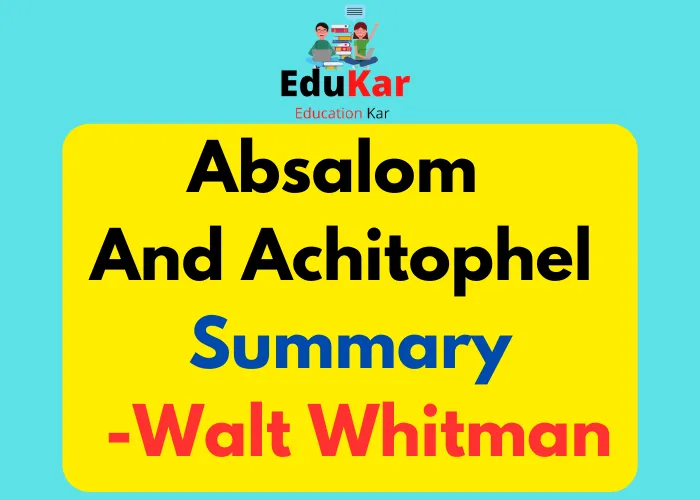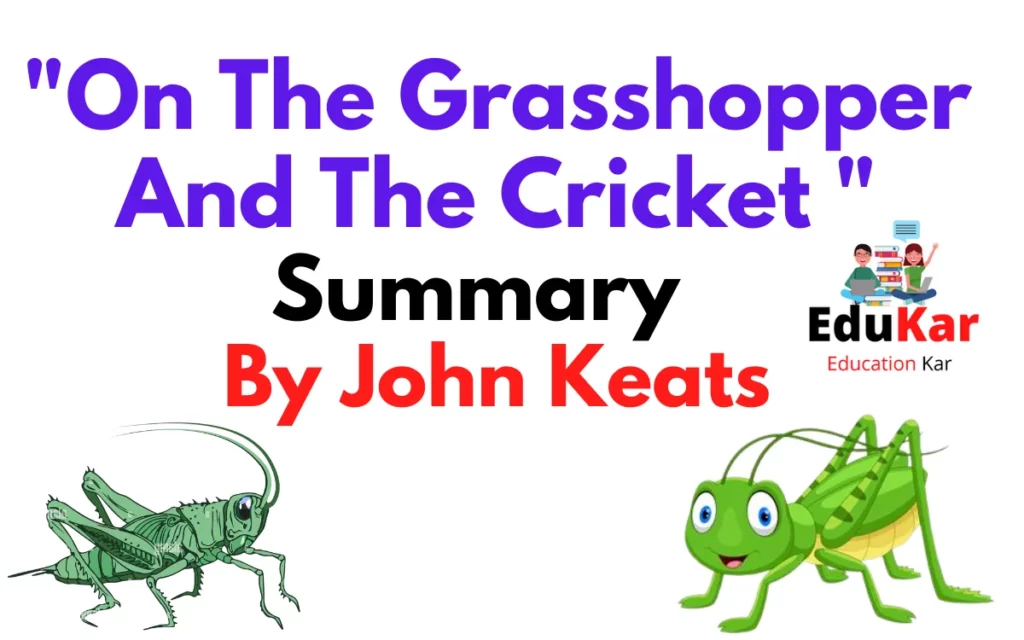Contents

| Name | On His Blindness |
| Type | Summary |
| Board | CBSE Board |
| Author | John Milton |
Introduction
The poem On His Blindness is an autobiographical sonnet within which he convey his feelings as a blind man. The poet thinks, in the starting, that he won’t be able to serve God as his sight is gone.
As the poem begins, he starts to believe that God wants him to keep working, in spite of the very fact that his job caused him to lose his sight. In the end, he’s assured that he’s serving God just like the angels who just look forward for the orders of God.
The poem features a number of Biblical references that depict Milton’s stern belief in God. The poem is written down in the Petrarchan rhyme scheme.
Theme- On His Blindness
The important themes in “On His Blindness” are biblical authority, grace, loss & human frailty & duty to God. Loss & human frailty: Milton explores the experience of losing his sight & concerned about the implications of his blindness in his relation with God.
Watch Full Poem Summary
Short Summary- On His Blindness
Stanza 1:
When I consider how my light is spent
Ere half my days in this dark world and wide,
And that one talent which is death to hide
Lodged with me useless, though my soul more bent
The speaker begins the poem by reflecting on his life and how he has spent half of his days in a “dark world and wide,” which could refer to his blindness or to the difficulties he has faced in life. He also mentions that he has been given a talent, or skill, that is “death to hide,” meaning that it is so important that he cannot keep it to himself. However, he feels that this talent has been wasted because he is unable to use it, even though his soul is eager to do so.
Stanza 2:
To serve therewith my Maker, and present
My true account, lest He returning chide;
“Doth God exact day-labor, light denied?”
I fondly ask. But Patience, to prevent
The speaker goes on to explain that his talent is meant to be used to serve God and to present a true account of his life when he returns to face judgement. He is worried that God will be angry with him for not using his talent, but then he realizes that it is impossible to work when he is denied the light he needs to see. He asks whether God really expects him to work when he cannot even see, but he quickly realizes that he needs to have patience in order to accept his situation and to prevent himself from becoming too upset.
Stanza 3:
That murmur, soon replies, “God doth not need
Either man’s work or his own gifts.
Who best Bear his mild yoke, they serve him best. His state
Is kingly. Thousands at his bidding speed,
The speaker then hears a voice that tells him that God does not need his work or his gifts, as God is already all-powerful and does not require any help. Instead, the best way to serve God is to accept his “mild yoke” and to do his will. The voice reminds the speaker that God’s state is kingly and that there are thousands of other beings who obey his commands.
Stanza 4:
And post o’er land and ocean without rest;
They also serve who only stand and wait.”
The final stanza of the poem is perhaps the most famous. The speaker concludes that even though he cannot work as he once did, he can still serve God by being patient and waiting for his will to be done. He reminds himself that “they also serve who only stand and wait,” meaning that simply being obedient and accepting God’s plan is a form of service in itself. The poem ends on a note of acceptance and resignation, with the speaker acknowledging that his blindness does not prevent him from fulfilling his spiritual duty.
About The Author
John Milton wrote “On His Blindness” to express his annoyance & wavering faith that his blindness brought on. At first, he doesn’t understand why God would make him blind if writing his greatest gift, requires sight or what he’s expected to do about it.
On His Blindness Important MCQ
On His Blindness Important MCQ
Conclusion- “On His Blindness”
In the chapter – On His Blindness teaches students that God doesn’t necessarily need our work or the exercise of our talents; it is those people who mostly voluntarily submit to God’s will that best work for him, even if that means waiting calmly. We hope this brief Summary of On His Blindness will facilitate you to have a thorough understanding of the poem. Meanwhile, you can visit edukar.in to access resources on CBSE Notes and CBSE Study Material & etc. for your Board exams preparation. You can also check our portal edukar.in for educational content.
FAQs on On His Blindness By John Milton
What is “On His Blindness” by John Milton about?
“On His Blindness” is a sonnet written by John Milton. It is about Milton’s feelings of frustration and despair after he lost his sight. He reflects on the loss of his ability to read and write, and expresses his fear that he will not be able to fulfill his duty as a poet.
Who is the speaker in “On His Blindness”?
The speaker in “On His Blindness” is the poet John Milton.
What is the theme of “On His Blindness”?
The theme of “On His Blindness” is the struggles of living with disability and the fear of not being able to fulfill one’s potential. The sonnet explores Milton’s feelings of frustration and despair after he lost his sight, and his fear that he will not be able to fulfill his duty as a poet.
What is the tone of the poem?
The tone of the poem is one of frustration, despair and resignation. Milton expresses his feelings of loss and disappointment with his condition, but also shows acceptance of his situation.
What is the rhyme scheme of the sonnet?
The rhyme scheme of the sonnet is: abab cdcd ee
How does the poem end?
The poem ends with Milton’s acceptance of his blindness and his belief that God will use him for his service, even if he can’t write or read. He says that he will do whatever he can for God, with the abilities he has left.



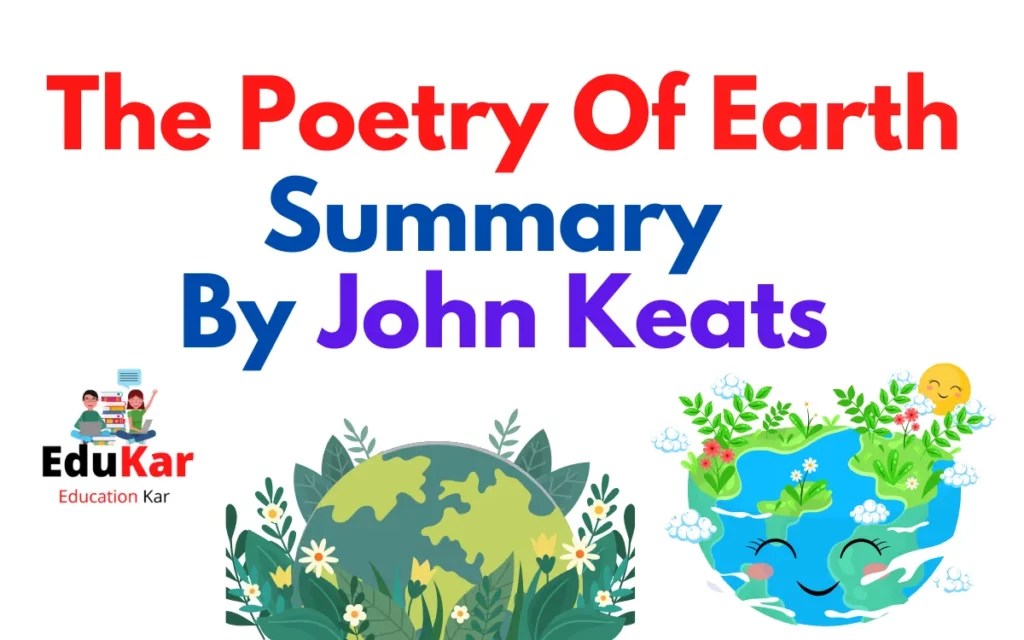

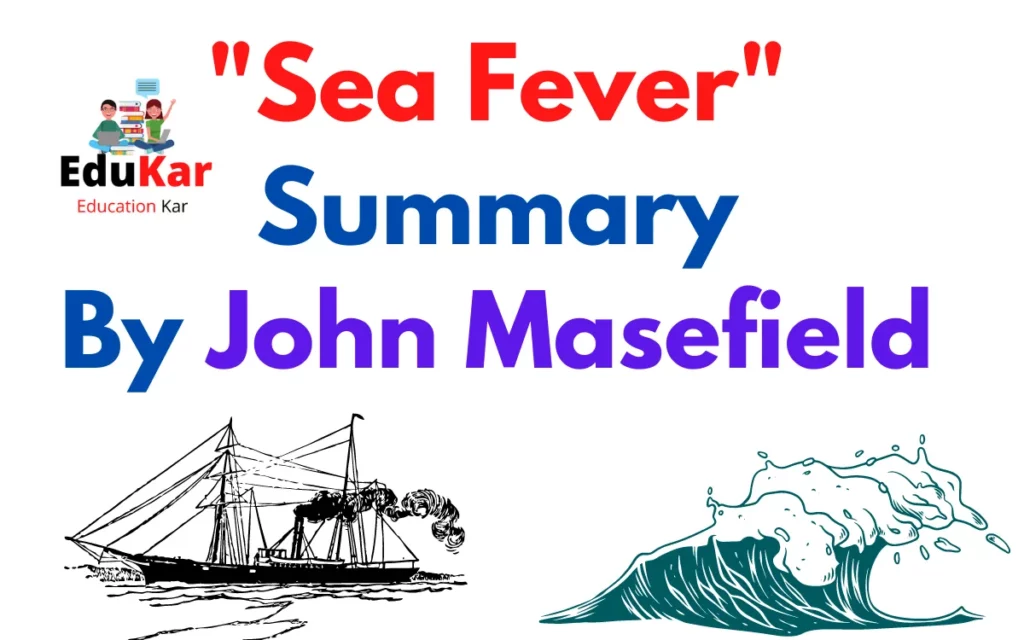
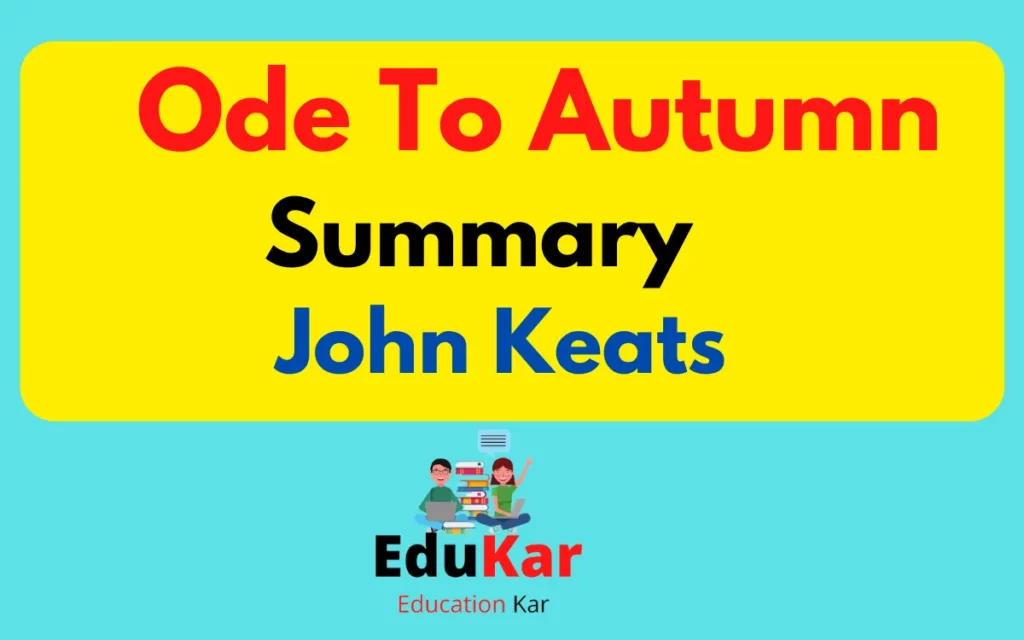
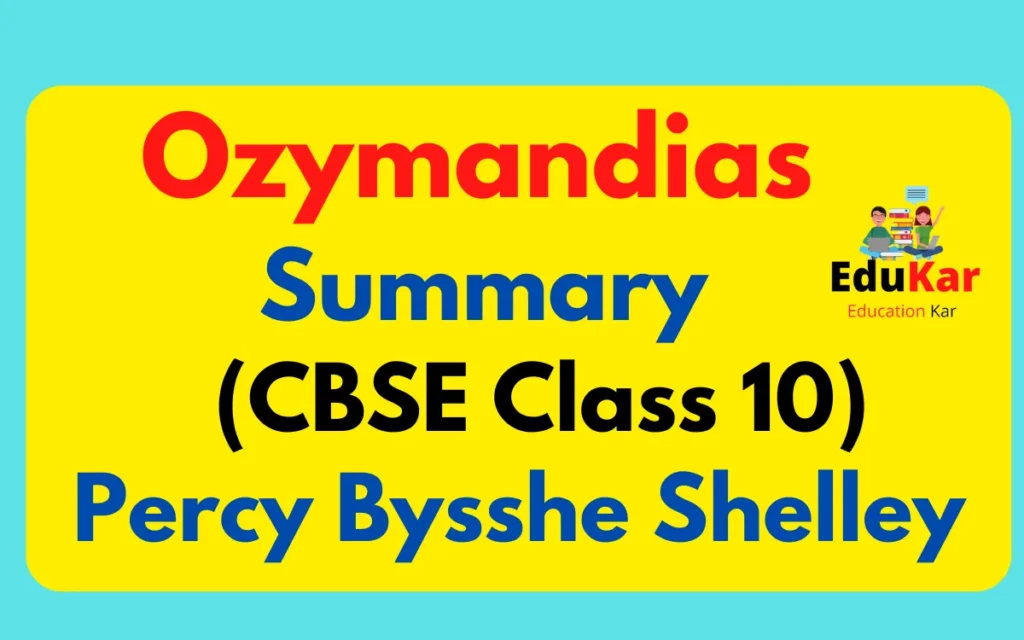
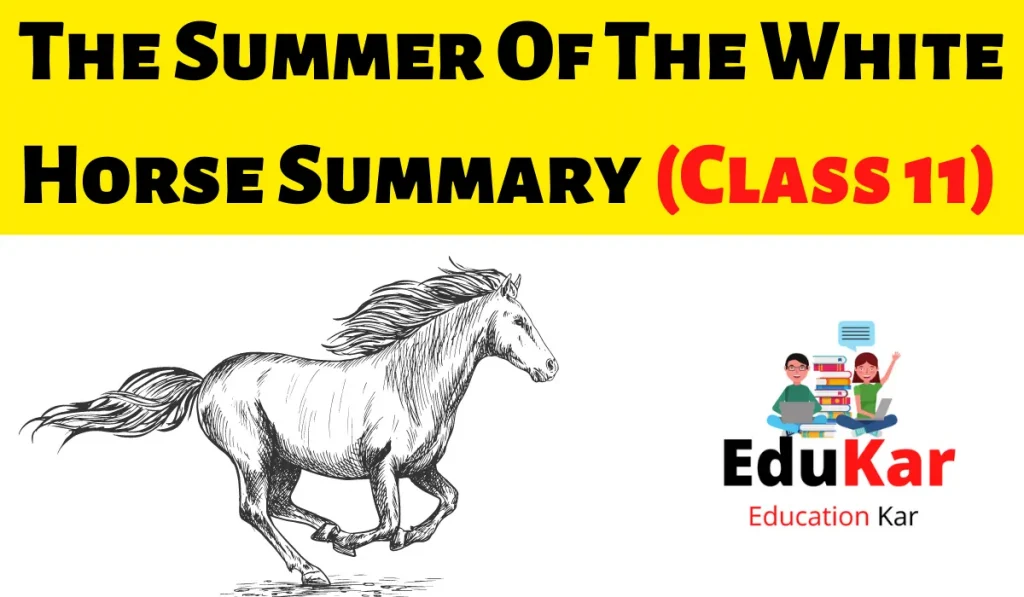
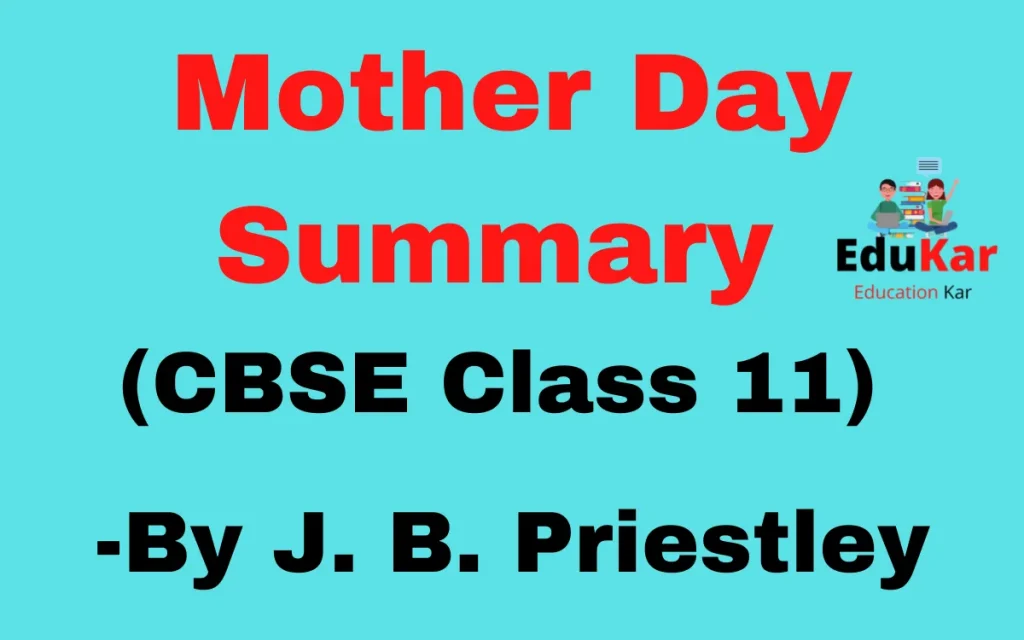
![No Men Are Foreign Summary [CBSE Class 9] By James Falconer Kirkup No Men Are Foreign Summary](https://edukar.in/wp-content/uploads/2022/10/No-Men-Are-Foreign-Summary--1024x536.webp)
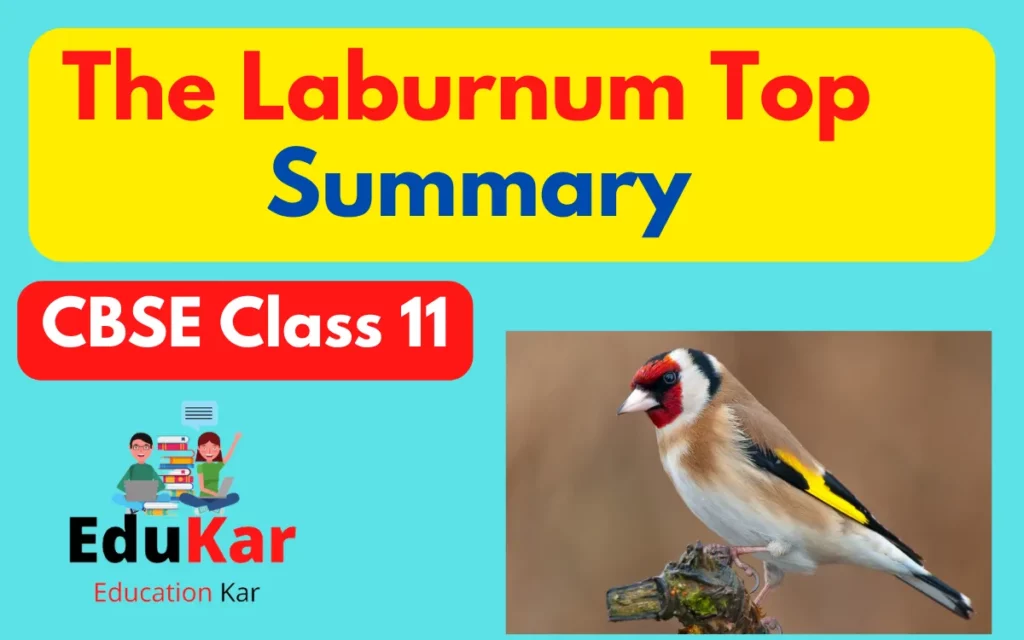
![The Old Man And The Sea Summary [Novel by Ernest Hemingway] The Old Man And The Sea Summary Novel by Ernest Hemingway](https://edukar.in/wp-content/uploads/2023/02/The-Old-Man-And-The-Sea-Summary-Novel-by-Ernest-Hemingway-1024x640.webp)
